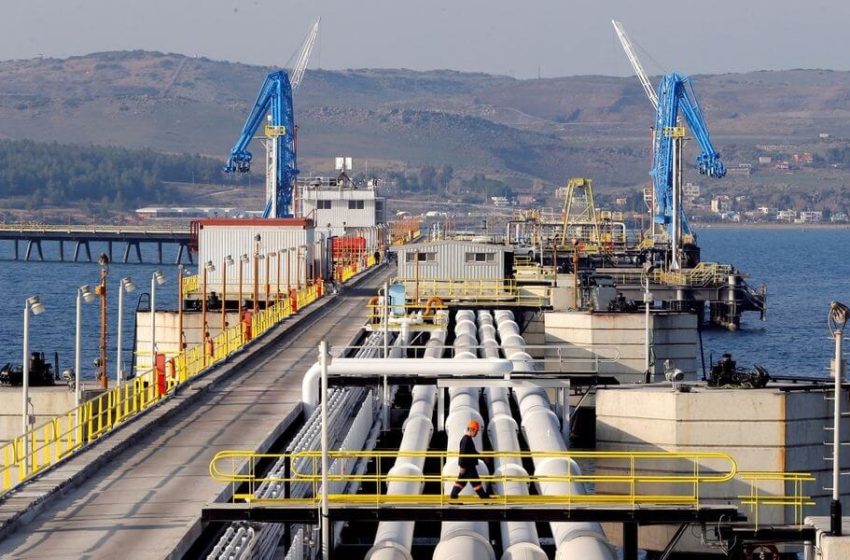Iraqi government is eager to resume oil exports through Ceyhan

The Turkish port of Ceyhan. Photo: Reuters
Baghdad (IraqiNews.com) – The Iraqi Ministry of Oil confirmed on Saturday the government’s eagerness to resolve outstanding issues and resume oil exports through the Turkish port of Ceyhan.
The spokesperson of the Oil Ministry, Asem Jihad, told the Iraqi News Agency (INA) that the Iraqi government is making great efforts to solve some of the legal, technical, and financial problems related to the contracts concluded by the Kurdistan region of Iraq with international companies, since these contracts are different from the contracts concluded by the federal government or the Ministry of Oil.
Jihad explained that the legal form of these contracts must be changed to be consistent with the contracts the Oil Ministry concludes.
The Iraqi official elaborated that solving these issues should be in conformity with laws to expedite the resumption of oil exports through Ceyhan.
The Turkish Ambassador to Iraq, Ali Reza Gunay, expressed last week his country’s readiness to resume oil exports from Iraqi Kurdistan.
Gunay’s remarks took place during his meeting with the Prime Minister of the Kurdistan Regional Government (KRG), Masrour Barzani, according to a statement issued by the KRG.
On November 12, the Iraqi Oil Minister, Hayan Abdul-Ghani, announced that an agreement would be reached with the KRG, oil companies, and Ankara to resume oil exports from Iraq to Turkey.
At that time, the Iraqi Ministry of Oil said in a statement that Abdul-Ghani and his accompanying delegation met with the Prime Minister of Iraqi Kurdistan in Erbil to discuss issues related to oil exports, which had been halted for months.
Turkey had stopped transporting Kurdistan’s oil to the port of Ceyhan on March 25 following an international arbitration decision obligating Ankara to pay compensation to Baghdad for violating the 1973 pipeline agreement by allowing the export of the region’s oil without Baghdad’s approval between 2014 and 2018.
